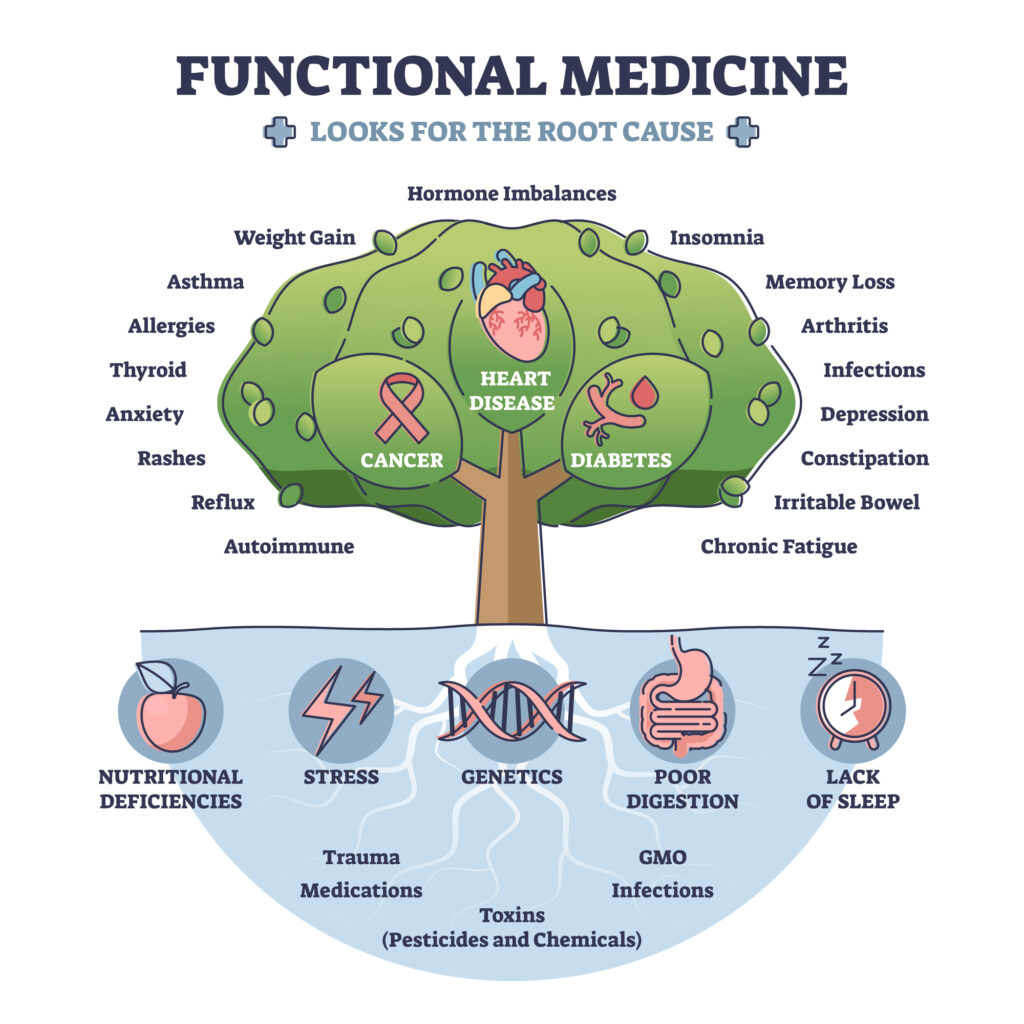What is functional medicine (also known as “precision medicine”)?
Exactly that! Medicine precisely for the individual, not the general population.
Unlike conventional medical testing, which typically focuses on diagnosing or incomplete, superficial testing, functional medicine testing takes the ultimate deep dive to identify the primary underlying genetic shortcomings or physiological imbalances that may be contributing to a patient’s symptoms or overall health. Functional medicine testing is a much more comprehensive version of standard medical testing that is used to evaluate the function of the body’s systems often at a cellular level.

You may have had your TSH (thyroid stimulating hormone) checked, but has your doctor ever ordered or looked at your T3, free T3, T4, free T4, or reverse T3? TSH is as down-stream as you can get for diagnosing thyroid disorders yet it is often the only indicator used to identify if your thyroid’s function is of concern. Standard medical testing protocols are unfortunately primarily dictated by insurance companies and what they will or will not pay for. This leaves you, the patient, without answers or a superficial, incomplete picture of your health.
Functional medicine testing is comprehensive and involves a range of different tests, including genetic testing, blood tests, stool tests, saliva tests, urine tests, and more.
Functional medicine testing is often used as part of a larger treatment plan that may include dietary changes, lifestyle modifications, targeted supplementation, and other interventions designed to address underlying imbalances and promote optimal health.
Overall, functional medicine testing is a personalized and comprehensive approach to healthcare that seeks to identify and address the root causes of health concerns rather than simply treating symptoms. By identifying underlying imbalances and addressing them through targeted interventions, functional medicine practitioners aim to promote optimal health and well-being.
